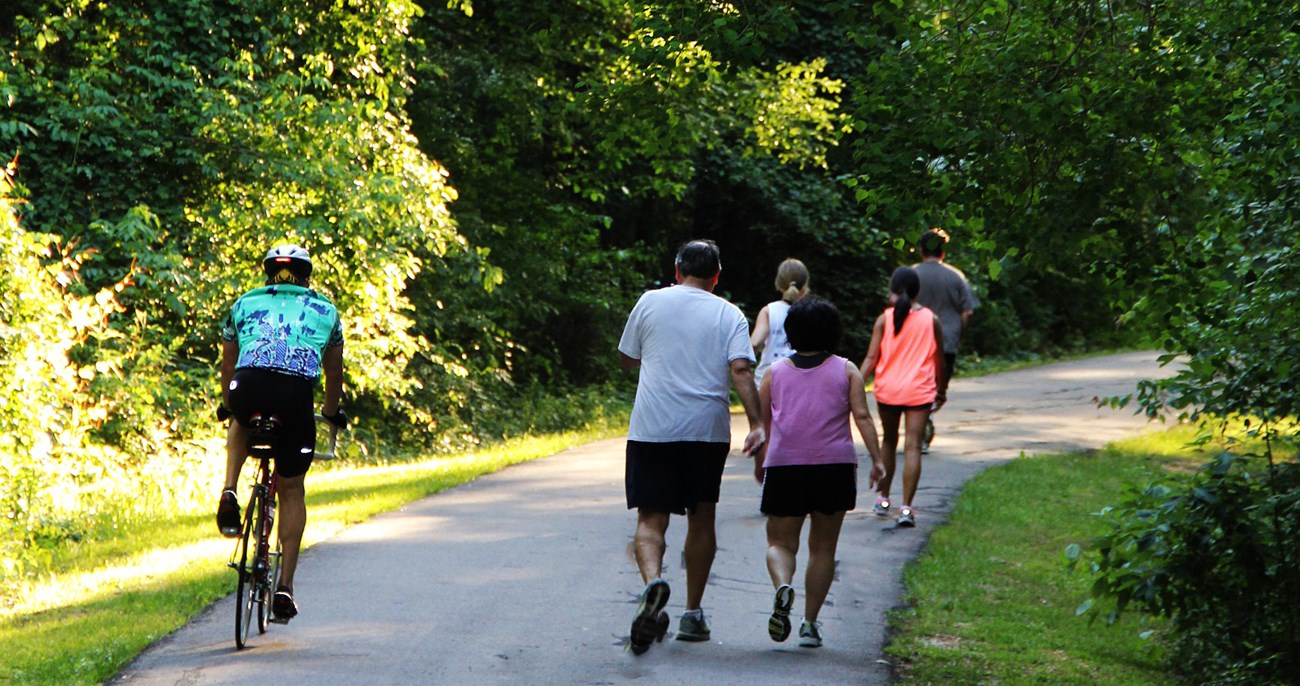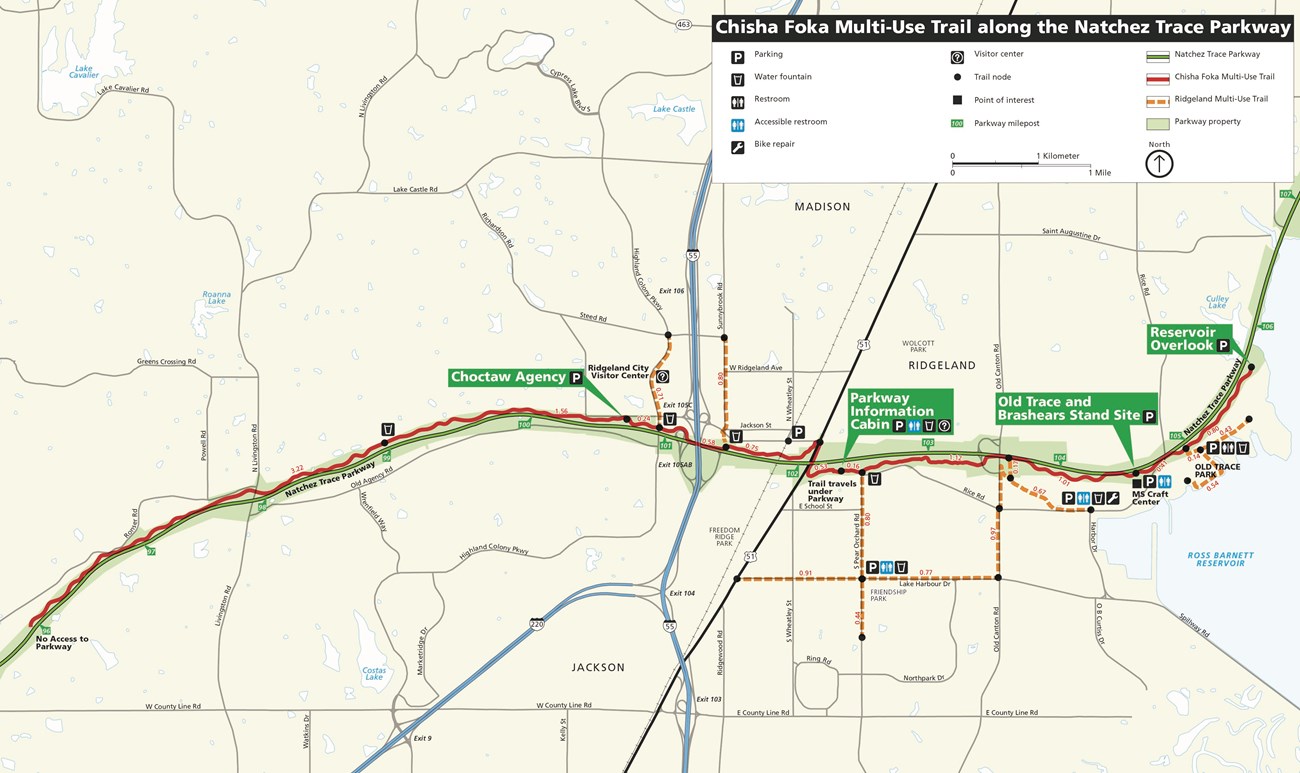
NPS Choctaw Homelands American Indians, including the Choctaw, lived in the Southeastern United States for thousands of years before European Americans. Choctaw homelands encompassed most of present-day Mississippi and portions of Alabama, Florida, and Louisiana. To navigate their homelands, the Choctaw followed a series of interconnected trails, including what is now known as the “Old Natchez Trace.” Today, trail users can walk a section of the original Old Natchez Trace at milepost 104.5 where the path is “sunken” from thousands of years of foot traffic. For thousands of years, the Choctaw culture formed and evolved within their homelands. European exploration and American settlers’ intrusion, however, drastically altered these lands. Choctaw Removal European Americans expanded into Choctaw homelands during westward expansion in the 1700s. The demand for land rapidly increased, and a series of treaties with the US whittled away Choctaw homelands. In exchange for land, the US government promised annual payments of goods and money, called annuities. Thousands of Choctaws walked for several days along the Old Natchez Trace to reach the Choctaw Agency where the annuities were distributed. Often, however, their journey was fruitless and they were turned away due to shipment delays or insufficient goods. The Choctaw Agency functioned as a site where weary travelers unable to afford accommodations at stands like Brashears Stand (mp 104.5) could find food, shelter, a post office, a store, and blacksmith services. It was at the agency that Choctaws notified US officials about intruding settlers, participated in Choctaw-American negotiations, and gained information from Choctaw leaders about land cessions that affected their homes and families. Mississippi gained statehood in 1817, but much of the land belonged to the Choctaw. More pressure by state and US officials forced the Choctaw to cede the area that the multi-use trail traverses in 1820. In 1821, the Choctaw Agency became the first Hinds county seat until Jackson became the capital of Mississippi in 1822. The Choctaw ceded the remainder of their homelands in 1830 with the Treaty of Dancing Rabbit Creek. The Choctaw Nation Today The Choctaw still live throughout the US, and they are the third-largest federally recognized American Indian tribe in the United States. The majority of the Choctaw were removed to Indian Territory, located in present-day Oklahoma, and formed the Choctaw Nation of Oklahoma. Over 5,000 Choctaw stayed in their homelands, creating the Mississippi Band of Choctaw Indians. The Jena Band of Choctaw Indians settled in Louisiana in the late 1800s. Despite a multitude of obstacles, the Choctaw retained their cultural identity and sovereign power. The Choctaw are a growing, vibrant nation actively preserving cultural practices that evolved within their homelands. The Choctaw express their culture through art like basketry, beadwork, dance, music, and clothing. The Choctaw language, part of the Muskegean language group, is still spoken and taught to tribal members. For hundreds of years, the Choctaw played stickball, called the “little brother of war,” and today the World Series of Stickball is held annually at the Choctaw Indian Fair in Choctaw, MS. 
NPS The Chisha Foka Multi-Use Trail is a great way for joggers, bicyclists, and nature enthusiasts to experience the Natchez Trace Parkway in Ridgeland and the busy Jackson metropolitan area. The trail runs from Milepost 95.8 to Milepost 105.6, providing nearly 10 miles of recreational trail. The trail gradually slopes and winds through various hardwood and pine trees. Each season offers new sights and smells as different foliage, blossoms, and wildflowers appear. While on the trail, search for the variety of birds and mammals that call this area home. The trail is a shared public space with users of various skill levels, speeds, and modes of transportation. It is important for all users to be respectful, courteous, and safe to create a positive trail experience for everyone. Trail Recommendations • Stay on the right, pass on the left. • If walking or bicycling side by side, switch to single file when others need to pass. • Bicyclists should yield to pedestrians. • Give an audible signal when passing. • Leave nature as you find it for others to enjoy. • Carry out any litter. • Pets must be on a leash six feet long or less. Please pick up after your pet. • The trail runs close to private property. Please respect owners’ privacy and posted signs. • Motorized vehicles are prohibited. Accessibility We strive to make our facilities, services, and programs accessible to all. The Chisha Foka Multi-Use Trail is a great area for visitors looking for wheelchair-accessible trail options along the Natchez Trace Parkway. Motorized equipment required for accessibility is permitted. For a Safe Visit • Be aware of your surroundings, carry a cell phone, and call 911 for emergencies. • Use extreme caution when the trail crosses roads or runs near the Parkway shoulder. • During excessive heat, rest in shaded areas, stay hydrated, and understand your limits. • Bring extra water and know water fountain locations. • Avoid fatigue; stop often to refresh. • Stay on the established trail. • Be watchful for fire ants, poison ivy, and venomous snakes. • Respect wildlife, and keep a safe distance. • Rest and water pets. Hours of Operation The trail is open daily from sunrise to sunset. Organized Events Organized special events and commercial photography on the Chisha Foka Multi-Use Trail requires a permit issued at least 10 business days prior to the event. For more information, call (662) 680-4014 or visit https://www.nps.gov/natr/planyourvisit/permitsandreservations.htm |
Last updated: January 6, 2021
